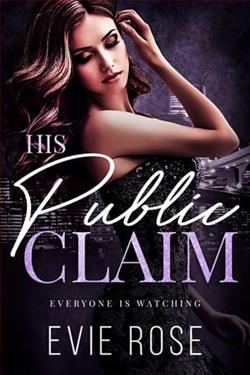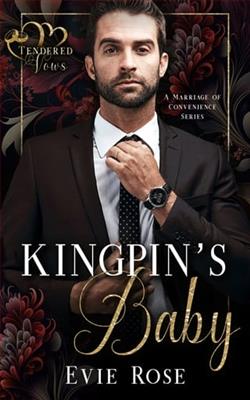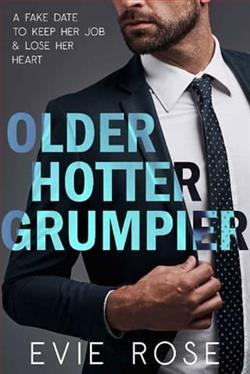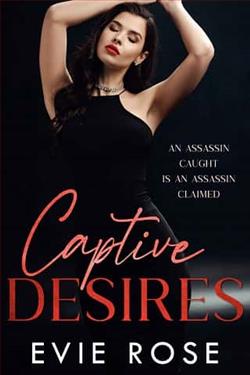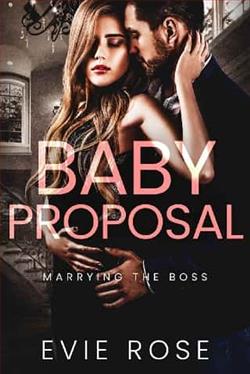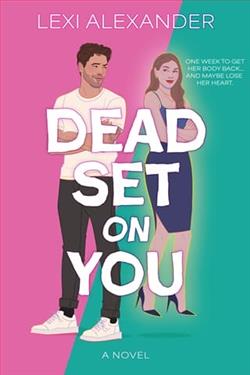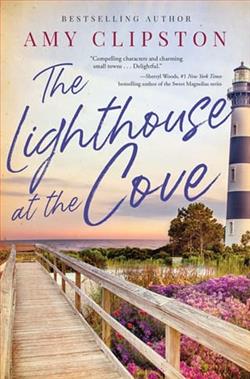Page 4 of Just for a Taste
“These look quite excellent,” she said, looking up at me. “You have some excellent hematology labs and no discernible nutritional deficiencies.”
“Yes, I try to keep a healthy diet despite my—” I paused, trying to find the right word. “—limited budget.”
At the mere mention of money, the student-loan debt and backlogged credit card payments I had accumulated over the last few years burned at the forefront of my consciousness. Seeing the extent of the riches around me, I couldn’t help but fear Doctor Ntumba would look down upon such a high number if she knew about it. I took in a shaky breath and tightened my fists, now painfully scared she could tell my dress was thrifted.
Doctor Ntumba set aside the lab results and tapped my resume with the tip of a ballpoint pen. “I see you attended the London School of Economics, but you don’t have your major listed.”
Heat rushed to my face. I had deliberatelynotwritten down my major because I feared my intent in coming here would become clear. Maybe leading with honesty was the best idea, though I didn’t know if Doctor Ntumba was as tight-lipped as the rest of the Medici family was known to be.Shouldn’t you know?I wanted to ask.You’re the one who reached out to me!
“I majored in Renaissance vampiric history,” I finally admitted, “with a minor in biology.”
She gazed at me for a pronounced period, her expression inscrutable, then finally replied, “That sounds interesting. And what brings you to Italy?”
“I’m doing my thesis on Italian history, but I’m on . . . an extended break. I came here to save up for a bit and organize my current research.”
I conveniently neglected to mention any specifics, and she did not pursue them. Instead, she returned her attention to another document. After several moments, she spoke once more. “You realize that, given the remote nature of the Abbazia di Santa Dymphna, you are effectively cut out from the outside world, correct? No Wi-Fi, no phones, not even mail unless you travel into town. And you are okay with the fact that you will not be receiving any guests?”
I nodded, a bit more eagerly than intended. “That isn’t an issue at all! I have more than enough paperwork to keep me occupied. And I’m not exactly the most social person, either, so that won’t matter.”
Again, a pronounced silence. Unlike the former, this one was punctuated by a series of rapid-fire questions.
“Do you have any allergies?”
“No.”
“Do you follow any particular diet?”
“I try to eat healthy and avoid alcohol. Otherwise, no.”
“Do you smoke?”
“No.”
“Blood type . . . ?”
“B negative.”
“Any scheduled medications that could transfer through your blood?”
I chewed the inside of my cheek. “Yes.” She raised a brow, and I continued, “One hundred milligrams of sertraline daily, at night.”
“For?”
“Panic disorder.”
Doctor Ntumba made a brief note of this, then said, surprisingly jovially, “Duca de’ Medici could probably benefit from a dose or two of that, as you’ll soon find out.”
My heart leaped to my throat. I would be meeting arealMedici, in the flesh. Did this count as success? Maybe I should have felt some sense of fulfillment, but all I felt was unease. I reminded myself for the dozenth time that Ineededthis job.
“I’ll take you to the piano room to meet Duca de’ Medici for the second part of the interview. Follow me.”
Chapter 2: Crepi
When I entered the piano room, I found myself engulfed in darkness. The sound of orchestral music played on an old gramophone. A woody, spiced scent hung in the air, some long-faded cologne now lingering among the musty abandonment. It was neither warm nor cold but rather a strange lukewarm temperature that made me feel like I was swimming in myself. I had the sensation that this was what it was like to be dead.
But, I supposed if Iweredead, I wouldn’t hear the blood surging through my ears. I couldn’t help but shiver. Was this really the room I was meant to be meeting a member of the illustrious Medici family in?
Just as I was about to retreat, a low, serious voice reverberated throughout the room. “Would you like some light?”








